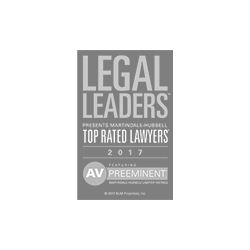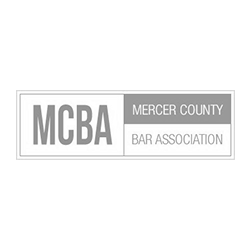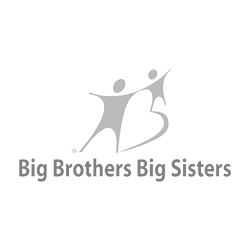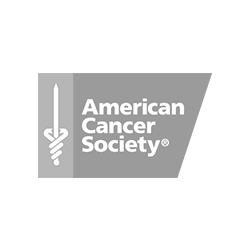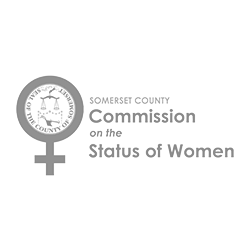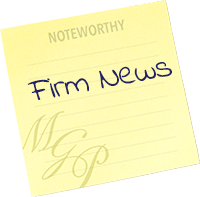October 2, 2020
COVID-19 EMPLOYMENT AND FINANCIAL UPDATE
Many relief programs and information resources are available from the federal and state governments for individuals and small businesses impacted by the COVID-19 pandemic. Below, you will find updated information about these programs and resources along with direct links to relevant government webpages.
If you are an employee, employer or business impacted by COVID-19 and need legal assistance, the attorneys at Mason, Griffin & Pierson, P.C. are available to help.
Families First Coronavirus Response Act (FFCRA)
On March 18, 2020, President Trump signed the Families First Coronavirus Response Act (Act), which provides benefits for both employees and employers impacted by the pandemic. The most significant aspect of the FFCRA is the requirement for many employers to provide paid sick leave or expanded family and medical leave for specified COVID-related reasons. This requirement will continue until December 31, 2020 (unless extended).
The program is administered by the U.S. Department of Labor, whose COVID-19 resource page for the FFCRA can be found at: https://www.dol.gov/agencies/whd/pandemic/ffcra-employee-paid-leave. The DOL’s Wage and Hour Division recently announced revisions to the regulations that implement the FFCRA leave provisions. Further information on the revisions is available here: https://www.dol.gov/agencies/whd/pandemic.
Which Employers are Covered?
The FFCRA’s leave requirements apply to private employers with fewer than 500 employees and certain public employers. However, small businesses with fewer than 50 employees may qualify for exemption from the requirement to provide leave due to school closings or child care unavailability, if the leave requirements would jeopardize the viability of the business as a going concern.
Benefits for Employees
The Act provides that employees of eligible employers can receive two weeks (up to 80 hours) of paid sick leave at their full regular rate of pay, if they are unable to work because they are quarantined, and/or experiencing COVID-19 symptoms, and seeking medical diagnosis.
Employees can receive two weeks (up to 80 hours) of paid leave at two-thirds of their regular rate of pay, if they are unable to work because they are caring for someone who is subject to quarantine; caring for a child whose school or child care provider is closed or unavailable due to COVID-19; and/or experiencing substantially similar conditions as specified by the U.S. Department of Health and Human Services. In some instances, employees who are unable to work due to the closure of their children’s schools or child care providers may be eligible for up to an additional 10 weeks of expanded paid family and medical leave at two-thirds their regular rate of pay.
The DOL webpage currently offers an online tool for employees to determine if they are eligible for benefits under the FFCRA, here: https://www.dol.gov/agencies/whd/ffcra/benefits-eligibility-webtool.
Benefits for Covered Employers
For employees who are unable to work because they are quarantined, and/or experiencing COVID-19 symptoms, and seeking medical diagnosis, eligible employers may receive a refundable sick leave credit at each employee’s regular rate of pay, up to $511 per day and $5,110 in the aggregate, for a total of 10 days.
For employees who are unable to work because they must care for someone with COVID-19, or for children whose schools or childcare facilities are closed or unavailable due to COVID-19, eligible employers may claim a credit for two-thirds of each employee’s regular rate of pay, up to $200 per day and $2,000 in the aggregate, for up to 10 days.
Employers are also eligible for credits for qualified health plan expenses for these employees and the employer’s portion of Medicare tax expenses related to the qualified wages.
For additional information about these tax credits, see the IRS tax credit links, below.
Internal Revenue Service (IRS)
Following the extension of the tax filing and payment deadline from April 15 to July 15, 2020, the IRS continues to process returns, issue refunds, and help taxpayers to the greatest extent possible. Certain IRS services (such as live assistance on telephones, processing paper tax returns and responding to correspondence) continue to be extremely limited, while other services may be delayed. The IRS’s COVID-19 resource page can be found at www.irs.gov/coronavirus. For the latest updates on IRS operations during the pandemic, click here: https://www.irs.gov/newsroom/irs-operations-during-covid-19-mission-critical-functions-continue.
The IRS began issuing Economic Impact Payments for individuals in April 2020. Further information about eligibility and payment status can be found here: https://www.irs.gov/coronavirus/coronavirus-tax-relief-and-economic-impact-payments-for-individuals-and-families
For businesses, the IRS is offering an Employee Retention Credit as well as tax credits to help small- and medium-sized businesses recover the cost of providing COVID-related leave to employees. For additional information about these programs, see the following links:
- New COVID-19 Employer Tax Credits Chart – https://www.irs.gov/pub/irs-pdf/p5419.pdf
- New Employer Tax Credits – https://www.irs.gov/coronavirus/new-employer-tax-credits
- Employee Retention Credit – https://www.irs.gov/coronavirus/employee-retention-credit
- News Release from March 20, 2020 – https://www.irs.gov/newsroom/treasury-irs-and-labor-announce-plan-to-implement-coronavirus-related-paid-leave-for-workers-and-tax-credits-for-small-and-midsize-businesses-to-swiftly-recover-the-cost-of-providing-coronavirus
The Coronavirus Aid, Relief, and Economic Security (CARES) Act
On March 27, 2020, President Trump signed the CARES Act, a $2+ trillion economic relief package aimed at protecting the American people from the public health and economic impacts of COVID-19. The benefits of the CARES Act include:
- direct payments to individuals called Economic Impact Payments;
- Paycheck Protection Program (PPP) loans and loan forgiveness programs for small businesses;
- Pandemic Unemployment Compensation (PUC), providing an additional $600 per week on top of regular state Unemployment Insurance (UI) benefits;
- Pandemic Emergency Unemployment Compensation (PEUC), extending the length of time employees can collect state UI benefits; and
- the Pandemic Unemployment Assistance (PUA) program, which expands state UI benefits and covers many COVID-related scenarios and those traditionally left out, such as self-employed workers, independent contractors, freelancers, and “gig” workers.
For additional information on the CARES Act published by the U.S. Department of the Treasury, click here: https://home.treasury.gov/policy-issues/cares or here for information specific to small businesses: https://home.treasury.gov/policy-issues/cares/assistance-for-small-businesses.
New Jersey’s Department of Labor and Workforce Development has published a resource that, in part, addresses the interaction between state leave and unemployment laws and the PUA: https://www.nj.gov/labor/assets/PDFs/returntowork_guidelines.pdf
Occupational Safety and Health Administration (OSHA) and Centers for Disease Control (CDC)
Both OSHA and the CDC maintain COVID-19 resource pages that may be helpful for both employees and employers.
OSHA’s page, which contains information about returning to work, using face coverings, reducing worker exposure to COVID-19, guidance for specific industries, and much more, can be found here: https://www.osha.gov/SLTC/covid-19/.
For the CDC’s page, which contains information about symptoms, testing, how COVID-19 spreads, quarantining, traveling, and much more, click here: https://www.cdc.gov/coronavirus/2019-nCoV/index.html.
State of New Jersey Employee Protections
The webpage https://covid19.nj.gov is New Jersey’s COVID-19 Information Hub. It contains a wealth of information about testing, symptoms, business reopening, voting, benefits, assistance, and services, etc.
Leave and Benefit Programs
The state Department of Labor and Workforce Development (LWD) administers many programs that have become more important than ever because of the COVID-19 pandemic: Earned Sick Leave, Temporary Disability, Family Leave Insurance, Workers’ Compensation, and Unemployment Insurance. New Jersey’s leave laws are among the most comprehensive in the country and cover all employees—full-time, part-time, temporary, and seasonal. Information on each of these programs can be found at https://www.nj.gov/labor.
The Unemployment Insurance (UI) program, in particular, has been enhanced in several respects by the Federal CARES Act (discussed above) to further assist employees who are out of work due to COVID-19. For full details about eligibility for these additional benefits, see guidance from LWD here: https://myunemployment.nj.gov/labor/myunemployment/covid.shtml); and from the Federal DOL here: https://www.dol.gov/coronavirus/unemployment-insurance.
LWD has published several helpful resources, including “Returning to Work Amid COVID-19,” at https://www.nj.gov/labor/worker-protections/returntowork.shtml, “Worker Benefits, Protections and the Coronavirus (COVID-19): What NJ Workers Should Know,” at https://www.nj.gov/labor/worker-protections/earnedsick/covid.shtml, and a chart titled, “COVID-19 Scenarios & Benefits Available,” at https://www.nj.gov/labor/assets/PDFs/COVID-19%20SCENARIOS.pdf. These resources address a number of common scenarios in which employees and employers are impacted by COVID-19, and which state and/or federal benefits may help in those scenarios. However, many situations are not as straightforward, and may require additional assistance from LWD and/or an attorney. For example:
- An employee who is out of work because his employer voluntarily closed due to COVID-19 cannot use federal or state paid sick leave, but could be eligible for Unemployment Insurance (UI) benefits. However, if an employee is still being paid by his employer during the outbreak, he should not apply for unemployment benefits.
- An employee who is still employed, but whose regular hours of work have been reduced, could be eligible for partial UI benefits. In order to be eligible, the person cannot work more than 80% of the hours normally worked.
- An employee who cannot work at all because his place of business was ordered closed by a public official for a public health reason may use accrued Earned Sick Leave. If he exhausts his accrued leave and still cannot return to work due to the mandated closure, he may apply for UI benefits.
- An employee whose doctor recommends that he not return to work due to pre-existing health conditions that put him at heightened risk of COVID-19 complications may be able to use accrued Earned Sick Leave or Temporary Disability Insurance. Likewise, if an employee was told to self-quarantine due to possible COVID-19 exposure outside his workplace, he can use accrued Earned Sick Leave.
- An employee who is unable to work because he must care for a loved one with COVID-19 may use accrued Earned Sick Leave, and when that sick leave has been exhausted, he may apply for Family Leave Insurance under the New Jersey Family Leave Act.
- An employee who has been exposed to COVID-19 during the course of his employment and must now self-quarantine, must first use accrued earned sick leave, and will then be eligible for Workers’ Compensation.
- An employee who contracts COVID-19 because of his employment could be eligible for Workers’ Compensation benefits. On the other hand, if an employee tests positive for COVID-19 and it was not contracted during the course of employment, he may use his accrued Earned Sick Leave, and then may apply for Temporary Disability Insurance.
Full information regarding these leave and benefit programs can be found at the links below:
- Earned Sick Leave – https://www.nj.gov/labor/worker-protections/earnedsick/; https://www.nj.gov/labor/worker-protections/earnedsick/covid.shtml
- Temporary Disability – https://myleavebenefits.nj.gov/worker/tdi
- Family Leave Insurance – https://myleavebenefits.nj.gov/worker/fli
- Workers’ Compensation – https://www.nj.gov/labor/wc
- Unemployment Insurance – https://myunemployment.nj.gov/labor/myunemployment/
COVID-19 Related Discrimination
Employees are protected from employment discrimination and harassment on the basis of disability or perceived disability under both the Americans with Disabilities Act (ADA) and the New Jersey Law Against Discrimination (NJLAD). The NJLAD applies not only in the employment context, but also in the housing and public accommodation settings. According to the LWD, these protections apply when the conduct at issue stems from the COVID-19-related concerns. “[F]or example, your employer cannot fire you because you coughed at work and they perceived you to have a disability related to COVID-19.” Likewise, if you are a renter, a landlord could not refuse to rent to you or “refuse to make necessary repairs to your apartment because they say you are east-Asian and they are afraid of contracting COVID-19.” State of New Jersey, Office of the Attorney General, Division on Civil Rights, Civil Rights and COVID-19: Frequently Asked Questions, https://www.hcdnnj.org/assets/documents/covid%20virus%20crisis%20-%20div.%20on%20civ%20rts%20faqs.pdf.
The ADA and NJLAD also give individuals with disabilities the right to reasonable accommodations. Reasonable accommodations may include changes to policies, leaves of absence, job restructuring, or special equipment that would enable employees with disabilities to perform their job functions. So, for example, if an employee has a pre-existing condition that makes him or her more susceptible to a serious case of COVID, the employee can request accommodations, such as work from home or additional protections at work. Under the NJLAD, the reasonable accommodation requirement also extends to public accommodations and may require proprietors to modify their policies or premises to allow access by members of the public with disabilities.
In addition to the pre-existing legal prohibitions regarding disability discrimination, on March 20, Governor Murphy signed a new law, codified at N.J.S.A. 34:11D-12 and -13, that prohibits an employer from firing or otherwise penalizing an employee because he or she has requested or taken time off from work based on the recommendation of a medical professional because the employee has, or is likely to have COVID-19 and may infect others at the workplace. After the employee is medically cleared to return to work, the employer must reinstate the employee to the position he or she held when the leave commenced, with no reduction in seniority, status, employment benefits, pay, or other terms and conditions of employment. The law only applies during the COVID-19 pandemic and pendency of the related Public Health Emergency and State Emergency that Murphy originally declared in Executive Order No. 103. (This and Governor Murphy’s other executive orders are archived here: https://nj.gov/infobank/eo/056murphy/approved/eo_archive.html.)
The new law does not protect an employee from being fired, retaliated against, or otherwise penalized because he or she is home caring for someone who has COVID-19, but such employees may be entitled to benefits under the Earned Sick Leave Law, Family Leave Act, or Federal Families First Coronavirus Response Act.
Employees who believe their employer has violated this law can file a complaint in court or with LWD, seeking reinstatement and damages. Employers found to have violated the law are subject to a $2,500 fine for each violation.
Additional information about the new law and implementing regulations can be found on the LWD webpage here: https://www.nj.gov/labor/worker-protections/covid_discrimination.shtml; LWD has also published an explanation of the new law here: https://www.nj.gov/labor/assets/PDFs/CovidDiscrimination_FINAL.pdf.
Compliance Resources for New Jersey Employers and Small Businesses
LWD maintains a webpage with information and resources for New Jersey employers related to the COVID-19 pandemic, located here: https://www.nj.gov/labor/employer-services/business/covid.shtml. The page sets forth the answers to common questions that employers may have about reopening, bringing employees back to work, accommodating leave requests, keeping employees safe, employer charges for UI benefits, and economic assistance for businesses.
Business.NJ.gov also maintains a COVID-19 information hub for small businesses, located here: https://faq.business.nj.gov/en/collections/2198378-information-for-nj-businesses-on-the-coronavirus-outbreak.
-


-
Sharon Dragan - Special Occasion Events on Preserved farmsAttorney Dragan presented at the Municipal Clerks' Association of New Jersey Conference in Atlantic City in April on the topic of Special Occasion Events on Preserved farms from a municipal perspective. She presented along with two representatives from the NJ State Agriculture Development Committee, and analyzed how the new law on Special Occasion Events affects municipal administration and application of the NJ Municipal Land Use Law and Right to Farm Act. -
Hammett- Estate Planning Article Series
Tips for College Students & Parents: Be Prepared
As families begin to plan for their child’s transition into college, there are many practical logistics to consider. One such item that should be on the top of the list is to ensure they are prepared to be on their own from a legal perspective. At Mason, Griffin & Pierson, we offer a program to counsel college students and their parents in such matters. To find out more about preparing documents for your student, Click Here.
“Do I really need a Will?“ The answer for almost all adults in New Jersey, from those just starting out to those well into retirement years, is yes, you should have a Will.
At Mason, Griffin & Pierson, we can assist clients develop a comprehensive estate plan to express their wishes that incorporates, as appropriate, estate and gift tax planning strategies and prepare the documents. Documents include Last Wills and Testaments, Powers of Attorney, and Advance Directives for Health Care.
To find out more about estate planning, Click Here. To schedule a no obligation consultation, Click Here. -
New Reporting Requirements Corporate Transparency Act On January 1, 2024, reporting requirements under the Corporate Transparency Act ("Act"), went into effect. All businesses subject to the Act will have to report specific information on the company and certain individuals that own and/or control the company. Mason, Griffin & Pierson is happy to guide you through this reporting process and answer any questions that you may have. Please do not hesitate to reach out if you would like our assistance.
On January 1, 2024, reporting requirements under the Corporate Transparency Act ("Act"), went into effect. All businesses subject to the Act will have to report specific information on the company and certain individuals that own and/or control the company. Mason, Griffin & Pierson is happy to guide you through this reporting process and answer any questions that you may have. Please do not hesitate to reach out if you would like our assistance.
-
Sharon A. Dragan receives the Michael A. Pane Ethics In Government Award Congratulations to Sharon A. Dragan for receiving the Michael A. Pane Ethics In Government Award. The award was presented by the NJILGA at the New Jersey State League of Municipalities November convention. The Michael A. Pane Ethics In Government Award honors a municipal professional who exemplifies the highest standards of ethics and whose work has significantly enhanced the integrity of local government. November 2023
The Michael Pane Award, established by the Pane Family and the New Jersey State League of Municipalities, is given in honor of Michael A. Pane, Sr., who was the long-time editor of the Municipal Law Review, president and trustee of the New Jersey Institute of Municipal Attorneys, counsel to the New Jersey Association of Municipal Clerks, counsel to the League of Municipalities and author of the New Jersey Practice Series, Local Government Law volumes.
Congratulations to Sharon A. Dragan for receiving the Michael A. Pane Ethics In Government Award. The award was presented by the NJILGA at the New Jersey State League of Municipalities November convention. The Michael A. Pane Ethics In Government Award honors a municipal professional who exemplifies the highest standards of ethics and whose work has significantly enhanced the integrity of local government. November 2023
The Michael Pane Award, established by the Pane Family and the New Jersey State League of Municipalities, is given in honor of Michael A. Pane, Sr., who was the long-time editor of the Municipal Law Review, president and trustee of the New Jersey Institute of Municipal Attorneys, counsel to the New Jersey Association of Municipal Clerks, counsel to the League of Municipalities and author of the New Jersey Practice Series, Local Government Law volumes.
-
Liz Zuckerman appointed to the District VII Ethics Committee: The Supreme Court of New Jersey appointed Elizabeth Zuckerman to serve on the District Ethics Committee for District VII (DEC VII) for a three-year term. The district includes Mercer County. August 23, 2023
The Supreme Court of New Jersey appointed Elizabeth Zuckerman to serve on the District Ethics Committee for District VII (DEC VII) for a three-year term. The district includes Mercer County. August 23, 2023
-
Paul M. Bishop named Director We are pleased to announce the election of Paul M. Bishop to the Board of Directors, Mason, Griffin & Pierson, PC. Paul, one of the firm’s senior litigators, practices business, commercial, and general litigation, and represents clients in complex disputes throughout New Jersey’s state and federal courts. July 2023
We are pleased to announce the election of Paul M. Bishop to the Board of Directors, Mason, Griffin & Pierson, PC. Paul, one of the firm’s senior litigators, practices business, commercial, and general litigation, and represents clients in complex disputes throughout New Jersey’s state and federal courts. July 2023
- June 2022
- October 2021
- May 2021
- March 2021
- February 2021
- January 2021
- December 2020
- March 2020
- February 2020
- January 2020
- December 2019
- October 2019
- July 2019
- June 2019
- May 2019
- March 2019
- January 2019
- December 2018
- November 2018
- October 2018
- September 2018
- June 2018
- May 2018
- April 2018
- March 2018
- February 2018
- January 2018
- December 2017
- November 2017
- October 2017
- September 2017
- August 2017
- June 2017
- May 2017
- April 2017
- February 2017
- December 2016
- November 2016
- October 2016
- September 2016
- July 2016
- June 2016
- May 2016
- April 2016
- March 2016
- February 2016
- January 2016
- December 2015
- November 2015
- October 2015
- September 2015
- July 2015
- June 2015
- May 2015
- April 2015
- March 2015
- February 2015
- January 2015
- December 2014
- November 2014
- October 2014
- September 2014
- August 2014
- July 2014
- June 2014
- May 2014
- April 2014
- March 2014
- February 2014
- January 2014
- December 2013
- November 2013
- October 2013
- September 2013
- August 2013


